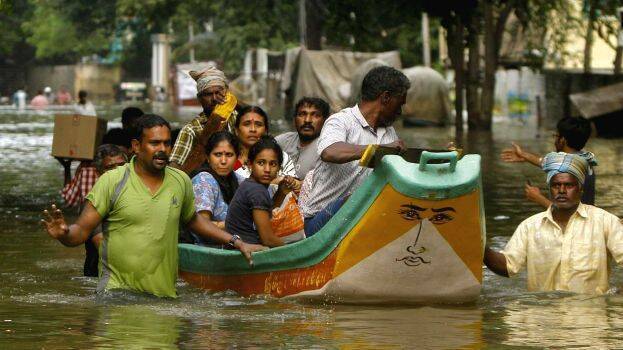

THIRUVANANTHAPURAM: A recent report by Germanwatch, an environmental organization, has placed India among the countries most susceptible to frequent natural disasters caused by climate change. According to the 2025 Climate Risk Index, India ranks sixth on the list, with Dominica in South America being the most at-risk nation.
The Intergovernmental Panel on Climate Change (IPCC), in its latest study, has also emphasized the growing climate challenges faced by India. The report warns that the country is experiencing increasing heat levels, with rising temperatures making it one of the hottest nations. The monsoon patterns are becoming erratic—weak during some seasons but followed by intense downpours, often leading to devastating floods. This shift has a severe impact on agriculture and livelihoods.
The Germanwatch report also references past natural disasters in India, including the 1998 Gujarat cyclone, the 1999 Odisha cyclone, Hudhud (2014), Amphan (2020), the 1993 North India floods, and the catastrophic floods of 2019.
Warning for coastal cities including Kochi
The latest IPCC study, conducted with NASA’s assistance, has raised concerns about rising sea levels along India's coastline. According to the study, the sea encroaches approximately 17 meters inland every decade.
If the sea level rises between 0.5 to 2.7 feet, at least 12 Indian cities, including Kochi, Mumbai, Chennai, Visakhapatnam, Mangaluru, Paradeep, Tuticorin, and Bhavnagar, could be at risk of submersion. The report projects that sea levels may rise by 11 cm by 2030, 71 cm by 2100, and up to 1.24 meters by 2150.
Threats to Kerala
According to a recent report by the Ministry of Earth Sciences, Kerala is at increased risk of heatwaves due to global warming. In the past, Kerala rarely experienced heatwaves, but now the state is seeing a rise in extreme heat conditions. There is also a high chance of severe floods. Over the last 10 years, both heatwaves and floods have increased. The report also notes that flood-related deaths have risen in Kerala due to climate change.